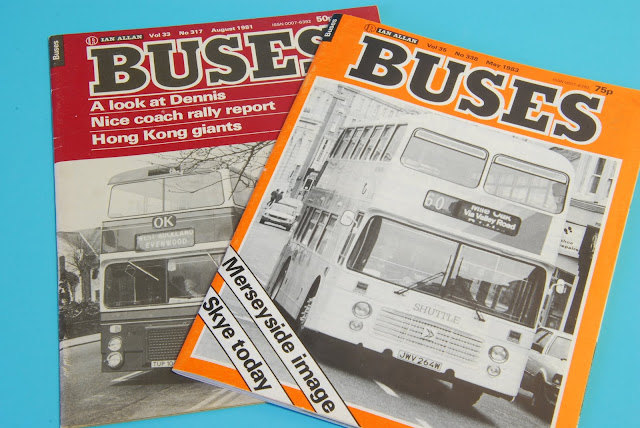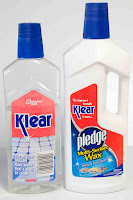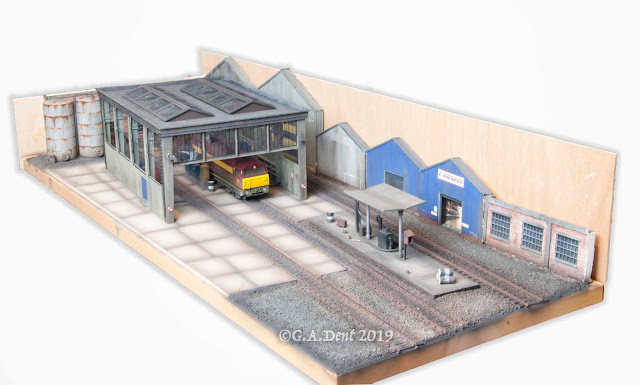BUSES

Between the ages of 9 and 13, I was convinced that my future lay in buses. Well, only if Liverpool FC decided not to sign me as the successor to Alan Hansen, that is. I even went as far as to approach British Leyland and Dennis to ask about apprenticeships and, to my delight, both firms sent me tons of stuff to adorn my bedroom walls: bus catalogues, specification sheets, even full-size laminated servicing charts for bus engines, gearboxes and air brake systems.
As a source of free entertainment, my Dad encouraged me to write to any person or business that I could think of in the hope of receiving something interesting in return and this certainly paid off (even NASA sent me a huge box of Space Shuttle-related material) but the best ‘result’ came from Warrington Corporation Transport who invited me to spend a day in their workshops at Wilderspool. After negotiating a day out of primary school, I shadowed the fitters, drivers, inspectors and office staff before being given my own private tour of the town in a 1930s rear-entrance double-decker, being dropped back at school bang-on chucking out time, to the envy of all. A goody bag of old uniforms, caps, tickets, Leyland Atlantean chrome fittings, tools, you name it, weighed me down on the way home. I even made it into the Warrington Guardian!
Recently, I found a couple of issues of Buses magazine (Ian Allan) in a box of old stuff the other day, dating from the early 1980s. One issue (May ’83) includes an interesting feature on the rebranding of Merseyside PTE. I was still a proper Scouser then (not a plastic one as I sadly am now) and can remember the new logos appearing that looked like a string of barbed wire wrapped around a ball. Now, I take great offence at negative stereotyping of Merseyside, but some of my abiding memories of growing up around Tuebrook and Anfield in the late ‘70s early ‘80s include lots of walls topped not only with barbed wire but broken bottles cast in cement.
This is probably due to living so close to two big football grounds and with the sport being much more of a ‘man’s’ game then. Reminds me also of trying to climb over too many walls to get my ball back. Yes, that Mersey PTE logo brings back memories of gashed hands and punctured caseys, at a time when Liverpool were undoubtedly the best team in Europe. I still say they should have signed me when I was 16 – me and Carra in the middle of defence... we'd be unbeatable!








Hi George!
ReplyDeleteIt seems buses are a quite common entry point to railway enthusiasm - my case is similar to yours, although set in the former East-European communist block's bus manufacturing champion: Hungary. My teenage years were those of a geeky passion for the then legendary Ikarus Class 200 series - with hours spent at bus terminals, depots or mere bus stops just to enjoy the smell of diesel, visits to the manufacturing and assembly plants (courtesy of my wonderful late grand father), collections of documents, leaflets, brochures and all that sort of pre-internet stuff. Then came the delusion of the newer generations of Hungarian made buses (Ikarus Class 300 - a few of which even made it to London for a couple of years a decade ago or so, and Class 400). And then of course, as professional development brought about a gradual but steady increase in prosperity, I started to collect more expensive stuff (e.g. model railway), I grew more comfortable in my travelling tastes (preferring my own car or bike, the more convenient train or the faster planes to my old favourites). Yet, isn't it so that teenage passions never really go away? Even if today I barely set foot on a bus when there seriously is no alternative, I still can't help being attracted by the look, feel and smell of them, and thus they creep back into my current hobby: my very first attempt at kit building, scheduled for this spring, happens to be an N scale Routemaster from the Oxford Diecast range.
All the best,
Zoltan
Hi Zoltan,
ReplyDeleteTHanks for the interesting comments. You're right - I know a good many rail enthusiasts who had similar passions for buses in their youth. I think it's the attraction of big diesel engines!
I do still enjoy the odd bus ride in more rural locations. There are some great value weekly tickets available in Devon which we usually take advantage of when on holiday as a break from driving and as there's no real rail alternative in North Devon.
It's urban buses that I find hard work and very unfriendly. And far too expensive. When I was young, Liverpool's buses were so heavily subsidised that you could travel across the city for 'coppers' - less than 10p! And that's not that long ago (1980s).Today, I have a choice of bus or train to the nearest town. Off Peak, the train is less than £2 return. The bus (a good 20min longer journey) is £4.
Cheers,
George
The piece about the broken bottle toppings for walls made me chuckle. It was a part of my childhood too, to see red brick walls topped with all manner of green, brown and white broken glass. One wonders how the modern 'Thought Police' would cope with them.
ReplyDeleteIn my case, its the GMPTE orange that i have fond memories of, especially on a Leyland Atlantean 602 or 320 service. My nod to this is an age old orange Hornby Pacer. Runs like a dog, woeful pickups, couldn't pull the skin off a rice pudding. But i'd never swap it.
Miles